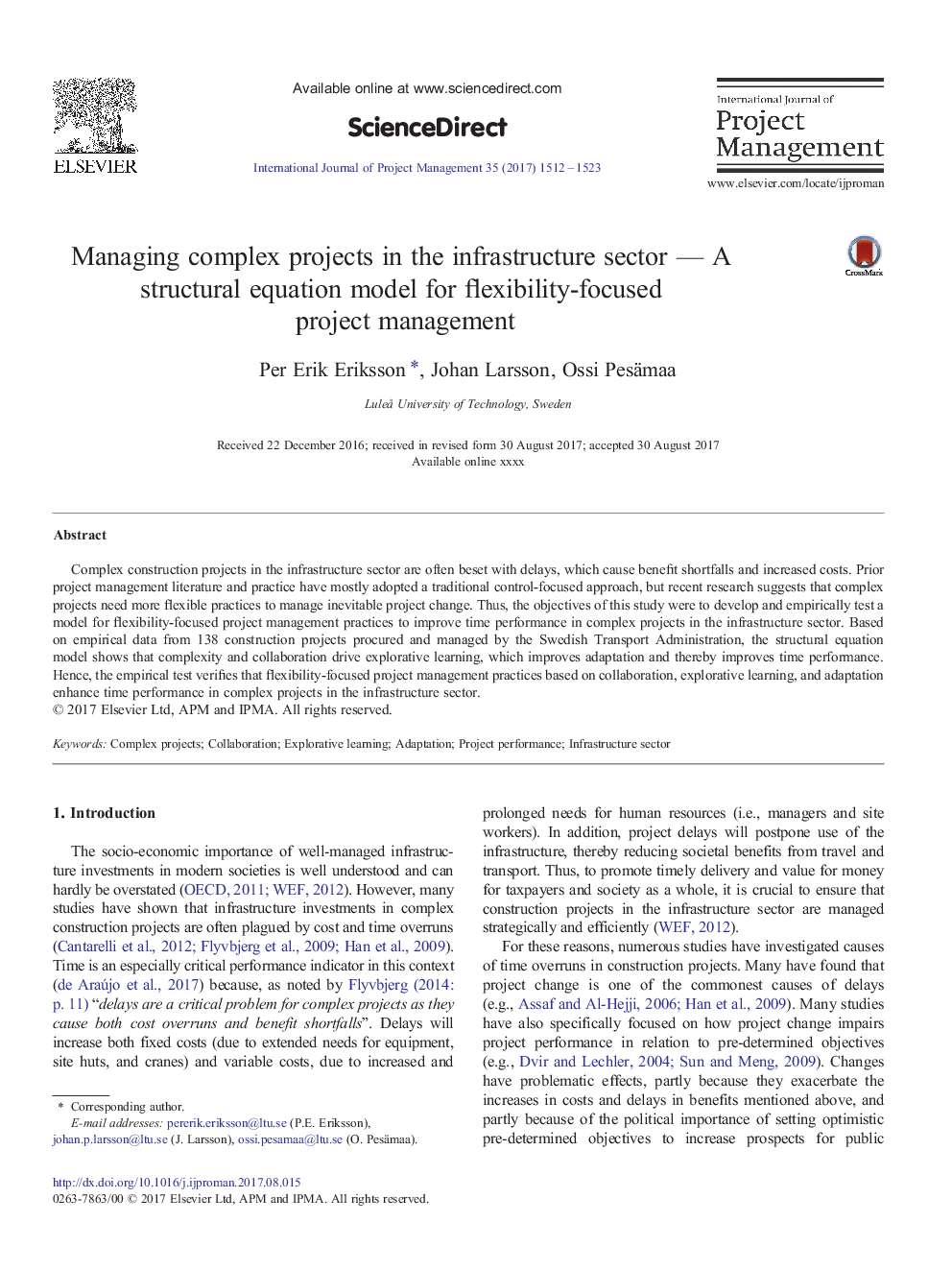| Article ID | Journal | Published Year | Pages | File Type |
|---|---|---|---|---|
| 4922060 | International Journal of Project Management | 2017 | 12 Pages |
Abstract
Complex construction projects in the infrastructure sector are often beset with delays, which cause benefit shortfalls and increased costs. Prior project management literature and practice have mostly adopted a traditional control-focused approach, but recent research suggests that complex projects need more flexible practices to manage inevitable project change. Thus, the objectives of this study were to develop and empirically test a model for flexibility-focused project management practices to improve time performance in complex projects in the infrastructure sector. Based on empirical data from 138 construction projects procured and managed by the Swedish Transport Administration, the structural equation model shows that complexity and collaboration drive explorative learning, which improves adaptation and thereby improves time performance. Hence, the empirical test verifies that flexibility-focused project management practices based on collaboration, explorative learning, and adaptation enhance time performance in complex projects in the infrastructure sector.
Related Topics
Physical Sciences and Engineering
Engineering
Civil and Structural Engineering
Authors
Per Erik Eriksson, Johan Larsson, Ossi Pesämaa,
